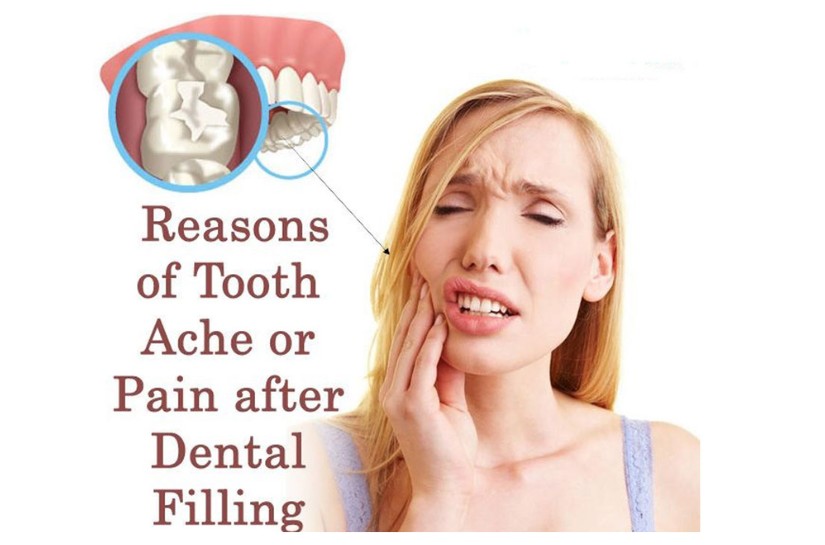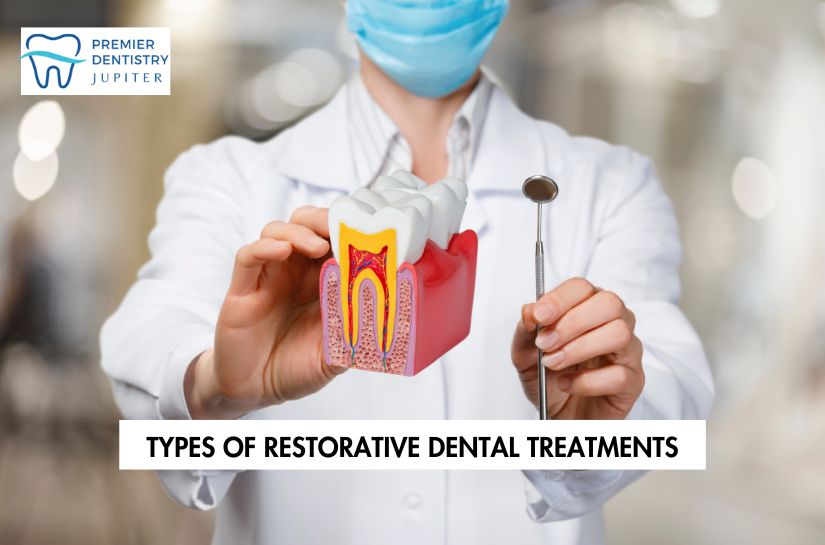1001 W Indiantown Rd, Ste 106, Jupiter, FL 33458
Tips To Reduce Your Pain After Dental Fillings

If you’ve recently undergone a dental filling procedure, you may be experiencing some discomfort or pain as part of the recovery process. However, fret not! There are several natural remedies and practices you can employ to alleviate this discomfort and promote a smoother healing journey. In this guide, we’ll delve into some simple yet effective tips to reduce your pain after dental fillings, ensuring a more comfortable post-treatment experience. Let’s explore these strategies in detail to help you find relief and get back to flashing that radiant smile in no time.
8 Tips To Reduce Your Pain After Dental Fillings
Here are some natural ways to reduce pain and pain after dental fillings.
1. Apply Cold Compress:
After your dental filling, apply a cold compress to the outside of your cheek near the treated tooth. Cold helps to numb the area and reduce inflammation, which can alleviate pain. Wrap a few ice cubes in a cloth and hold it against your cheek for 15-20 minutes at a time.
2. Rinse with Saltwater:
Saltwater rinse is a simple yet effective way to soothe sore gums and reduce pain after dental work. Mix a teaspoon of salt in a glass of warm water and swish it around your mouth for about 30 seconds. Saltwater helps to reduce inflammation and prevent infection.
3. Avoid Hard Foods:
Stick to soft and easy-to-chew foods after getting a dental filling. Avoid hard, crunchy, or sticky foods that can irritate the treated tooth and cause discomfort. Opt for foods like yogurt, mashed potatoes, soups, and smoothies until the sensitivity subsides.
4. Use Over-the-Counter Pain Relievers:
Non-prescription pain relievers like ibuprofen or acetaminophen can help alleviate post-filling discomfort. Follow the recommended dosage instructions on the label and consult your dentist if you have any concerns or medical conditions.
5. Clove Oil:
Clove oil has natural analgesic and antibacterial properties, making it a popular remedy for tooth pain. Dip a cotton swab in clove oil and apply it directly to the affected tooth and surrounding gums. Clove oil can provide temporary relief from pain and inflammation.
6. Drink Plenty of Water:
Staying hydrated is essential for your overall health and can also help reduce discomfort after dental fillings. Drink plenty of water to keep your mouth moist and promote saliva production, which aids in the healing process.
7. Practice Good Oral Hygiene:
Proper oral hygiene is crucial for maintaining oral health and reducing pain after dental procedures. Gently brush your teeth twice a day with a soft-bristled toothbrush and fluoride toothpaste. Be extra careful around the filled tooth to avoid irritation.
8. Rest and Relaxation:
Give yourself time to rest and recover after getting a dental filling. Avoid strenuous activities and try to relax to allow your body to heal. Stress can exacerbate pain, so practice relaxation techniques such as deep breathing or meditation.
Conclusion:
While some pain after dental fillings is normal, these natural remedies can help alleviate pain and promote healing. However, if you experience severe or prolonged pain, swelling, or other concerning symptoms, contact your dentist for further evaluation and treatment.
Remember, your oral health is important. If you experience any dental issues or need a check-up, schedule an appointment with Modern Dentistry of Jupiter, your trusted dentist in Jupiter, FL.
FAQs About Pain After Dental Fillings
Pain after a dental filling is common and typically occurs due to inflammation of the surrounding tissues or sensitivity in the treated tooth. The procedure may irritate the nerves in the tooth temporarily, leading to discomfort. Additionally, post-filling pain can also result from the pressure applied during the filling process.
The duration of pain after a dental filling can vary from person to person. In most cases, any discomfort or sensitivity should subside within a few days to a week after the procedure. However, if the pain persists or worsens over time, it’s essential to consult your dentist for further evaluation.
Yes, certain foods can aggravate post-filling pain or discomfort. It’s best to avoid hard, crunchy, or sticky foods that may put pressure on the treated tooth or irritate the surrounding gums. Instead, opt for softer foods that are gentle on your teeth, such as yogurt, mashed potatoes, and soups, until the sensitivity subsides.
While some pain after a dental filling is normal, there are certain warning signs that indicate you should seek professional dental care. If you experience severe or persistent pain, swelling, bleeding, or signs of infection such as fever or pus discharge, it’s crucial to contact your dentist immediately for proper evaluation and treatment. Delaying treatment could lead to further complications and jeopardize your oral health.



